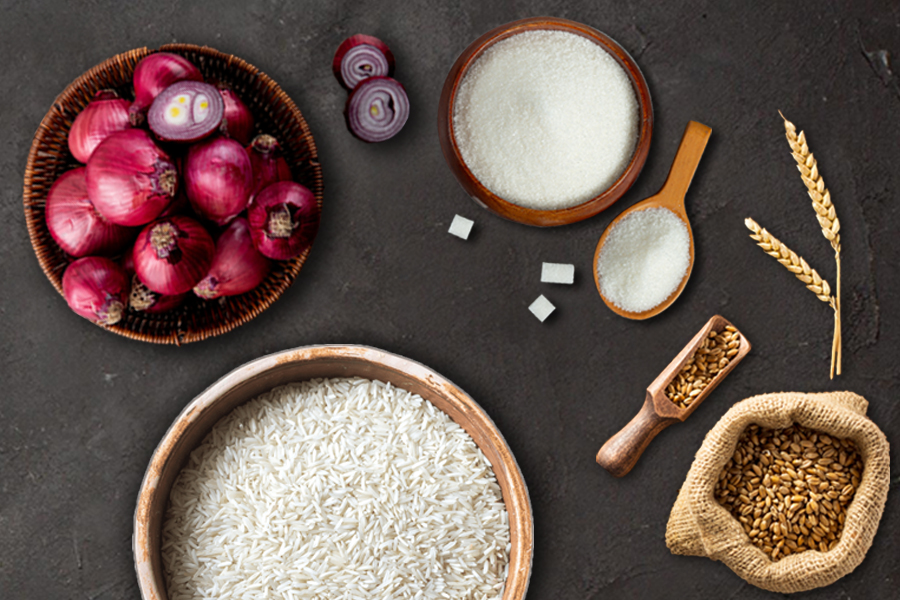F&B exports: Meeting global expectations
• Prominent buyers from Australia and New Zealand visiting IndusFood 2020 said that in spite of high recognition of Indian F&B products in these countries, it is yet not ubiquitous among mainstream population and is still limited to Indian and other Asian diaspora.
• One of the reasons for the rejections of Indian F&B consignments in developed country markets is the excessive use of chemical fertilisers and pesticides at the farm level and lack of Good Agriculture Practices (GAP).
• Chinese products have a much higher reach among the mainstream population in these developed nations than Indian products. Couple of reasons quoted are hiding ingredients, substandard packaging, smell of DDTs and improper reach and branding among mainstream population.
• Oceania’s and US consumers are pretty familiar with Basmati Rice, but still abstain from consuming it extensively because of high GI (glycaemic index), which causes high cholesterol levels. Thus, Indian F&B exporter need to focus on such buyer-specific concerns as they endeavour to spread their products among the mainstream population.

It is definitely worth asking why Indian food and beverage exports are limited to few countries and fall well short of their true potential across markets. During Indus food III, India’s largest supermarket for F&B products, which was scheduled on 8th & 9th January 2020, , many global buyers participated in Business to Business (B2B) sessions organised by TPCI. There were some commonalities in their perceptions, when they talked about the image of F&B products exported by India, especially in developed countries.
A careful analysis of the nations’ agriculture exports shows that India has been facing both tariff and non-tariff barriers in its agriculture product exports. Among the non-tariff barriers, food quality, safety and health-related issues have been major barriers to India’s agriculture exports in key markets such as the US and the EU. Data from the United States Food and Drug Administration (USFDA) shows that it rejected more imports from India than from any other country in the past couple of years. Some of the commodities that were rejected include fried and baked snacks, fresh vegetables (such as okra), fishery products (such as shrimp and prawns), instant noodles (exported by Nestle India Ltd), Basmati Rice and Indian spices.
Among the major reasons for the rejections in developed country markets is the excessive use of chemical fertilisers and pesticides at the farm level and lack of Good Agriculture Practices (GAP). Specifically, at present, 67 pesticides that have been banned in US, EU, Australia and other nations are still in use in India. Examples of such pesticides are carbosulfan, chlorpyriphos, endosulfan, and quinalphos. If the farmers use these pesticides, their produce in fresh or processed form will have traces of such chemicals and will face rejection in these nations. Secondly, the products may get contaminated during storage, processing or while packaging. For example, in the case of Indian peanuts there is a likelihood of aflatoxin contamination in the supply chain for which peanut-based products like kaju barfi and chikki are getting rejected. High aflatoxin content can lead to cancer and other fatal diseases.
Some of the prominent buyers from Australia and New Zealand said that in spite of high recognition of Indian F&B products in these countries, it is yet not ubiquitous among mainstream population and is still limited to Indian and another Asian diaspora. Chinese products have a much higher reach among the mainstream population in these developed nations than Indian products. Couple of reasons these buyers quoted are hiding ingredients, substandard packaging, smell of DDTs and improper reach and branding among mainstream population.
One example which was discussed during the B2B round tables was Basmati Rice. Oceania’s and US’ consumers are pretty familiar with Basmati Rice, but still abstain from consuming it intensively because of high GI (glycaemic index), which causes high cholesterol levels. Australian premier brand “Sun Rice” is dominating the Oceanian market because of these salubrious facts. Thus, Indian F&B exporters not just only need to focus on raising the standards of quality, but to focus on right issues.
The Indian nodal agency for food safety, Food Safety and Standards Authority of India (FSSAI), can regulate domestic market and imports but cannot regulate exports and does not have any jurisdiction over farmers. Thus, FSSAI in India has no role in ensuring traceability from the farm to the final consumer. Unlike India, in most developed countries the food safety authority has complete control over farmers, exports, imports and domestic market and they follow a uniform food safety standard for exports and domestic market.
In India, there is a dual standard – exports have to adhere to the importing country standards, and these standards may vary depending on the importing country, while imports and the domestic market have to adhere to the standards specified by the FSSAI. The FSSAI is trying to peg its standards with the Codex Alimentarius unlike the US and the EU which have a more rigid standard than the Codex Alimentarius. The lack of any role of FSSAI in exports and farm level contamination has been one of the key reasons for repeated rejections.
To conclude, the exporters should take some corrective actions immediately. The pesticides and chemicals that are banned in developed countries should be phased out and not subsidised. State agriculture department should work with agriculture institutes and universities to train farmers to adopt GAP. There is need for training of exporters, small and medium processors and other supply chain agents through programmes such as the India-EU Capacity-building Initiative for Trade and Development (CITD) project to upgrade their knowledge about the requirements of the importing countries. It is clear that in coming days the bar of the standards is going to be raised.













It is true that farmers are not aware of ill effect of banned pesticides.
Manufacturer and traders of banned pesticides must be controlled by Government.
This is much easier. Government must discuss with Pesticide Manufacturer on this.
nice post. This is a very nice blog. These blogs are providing such useful information. It is also helpful to us.agriculture products Manufacturers in Ludhiana Punjab India